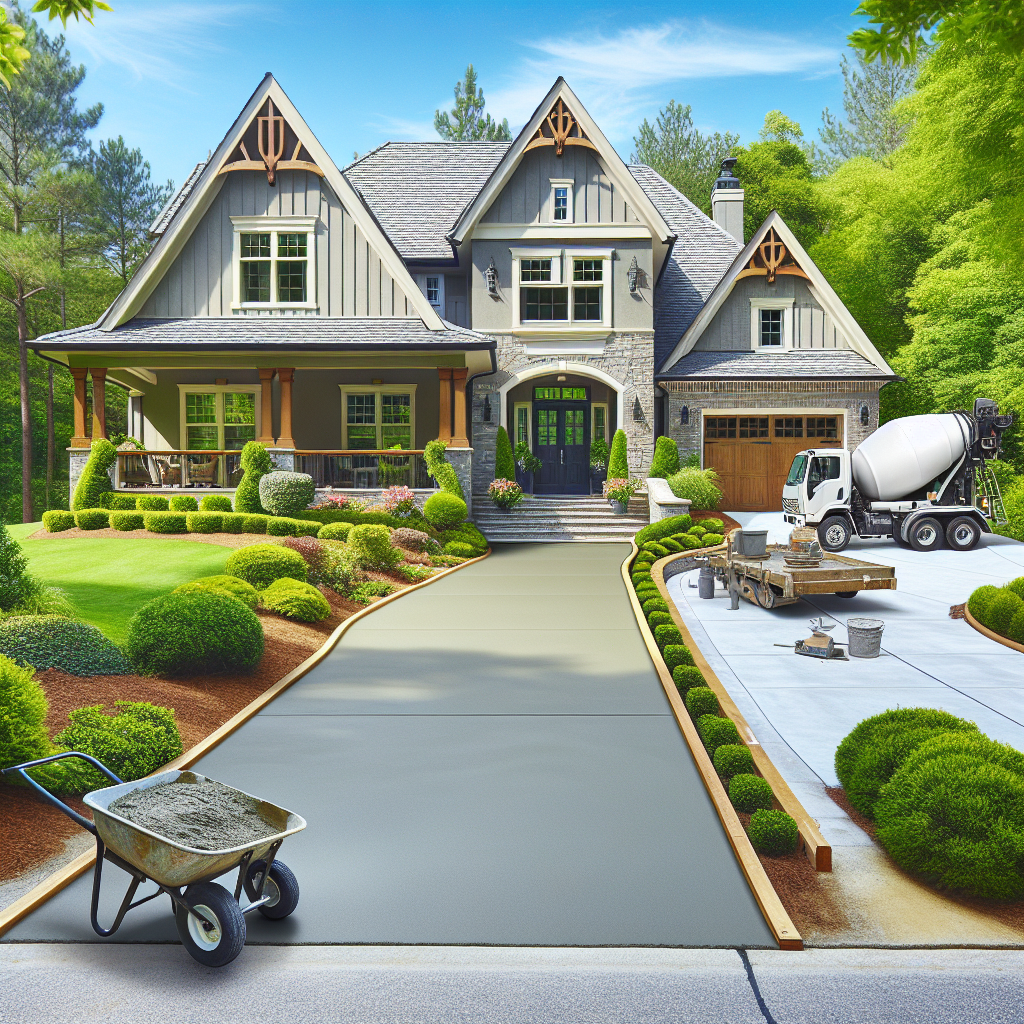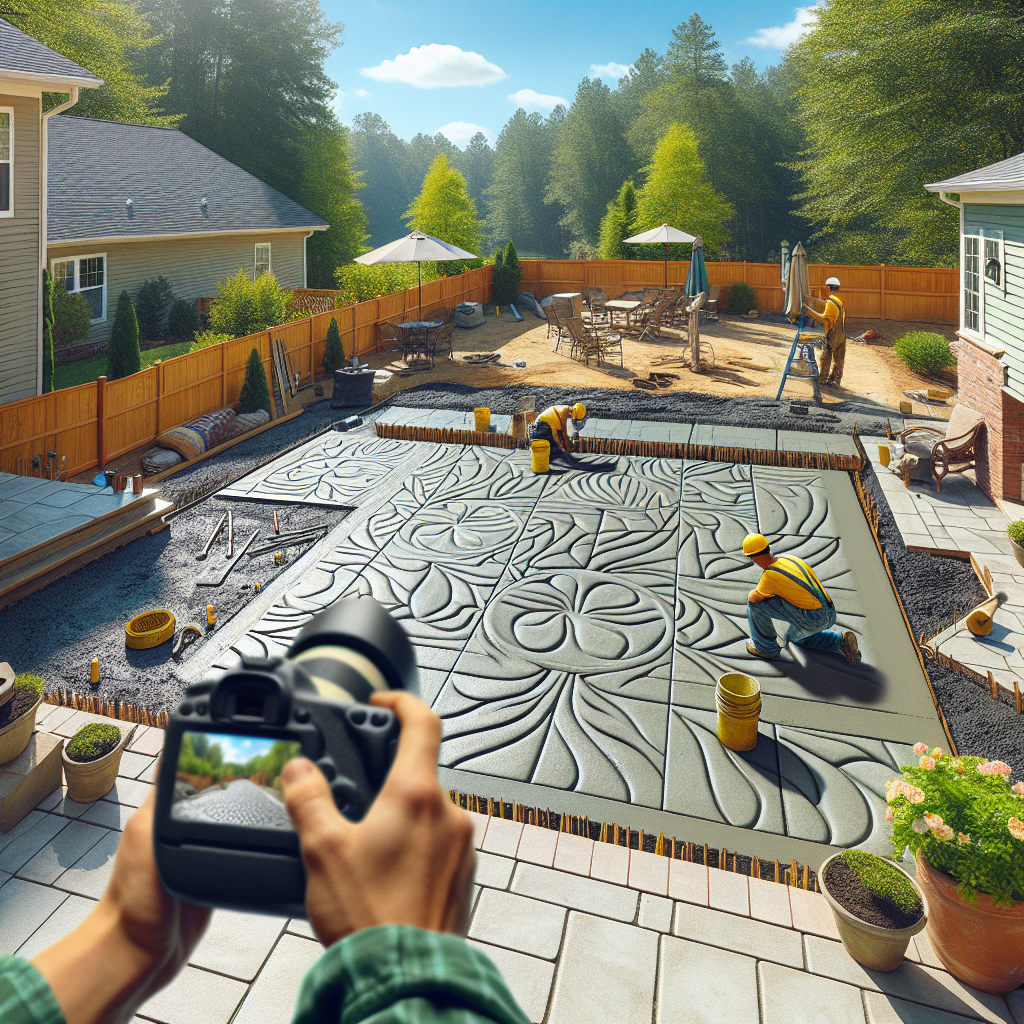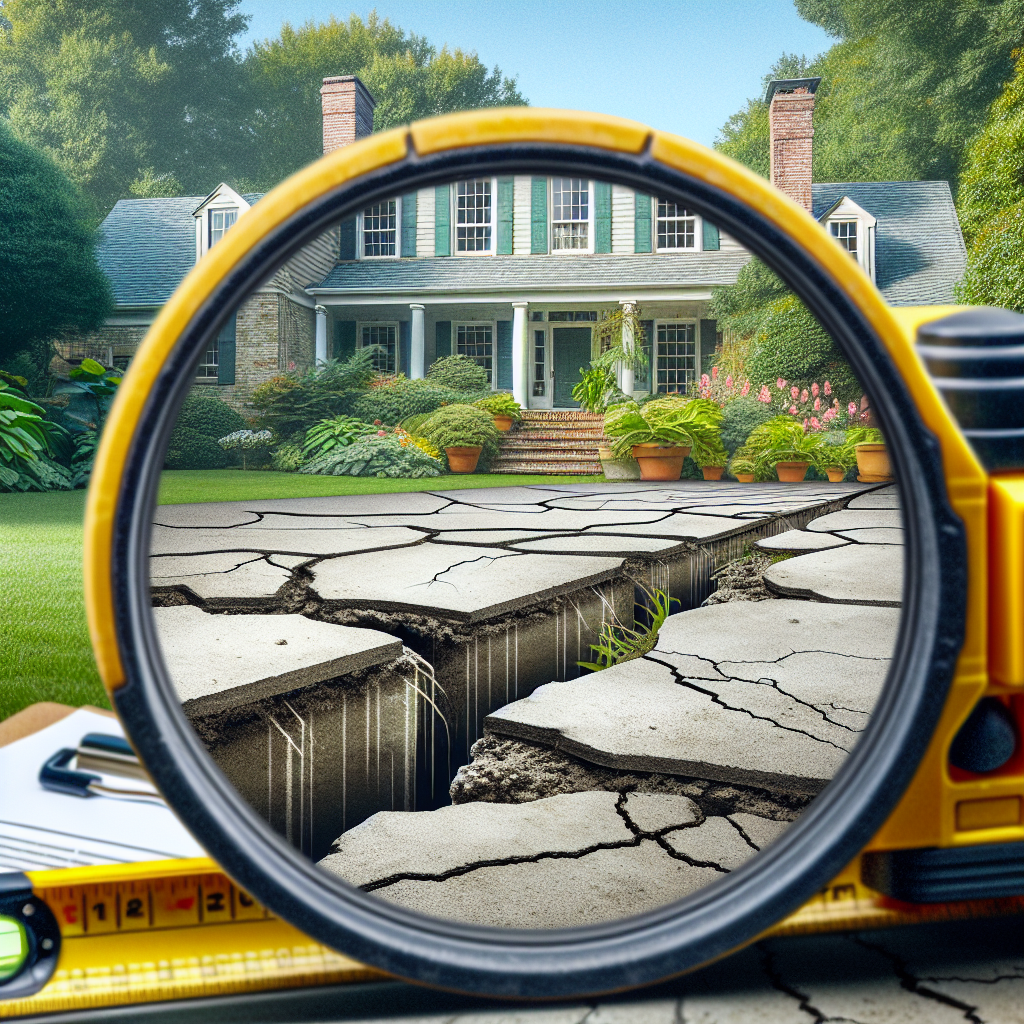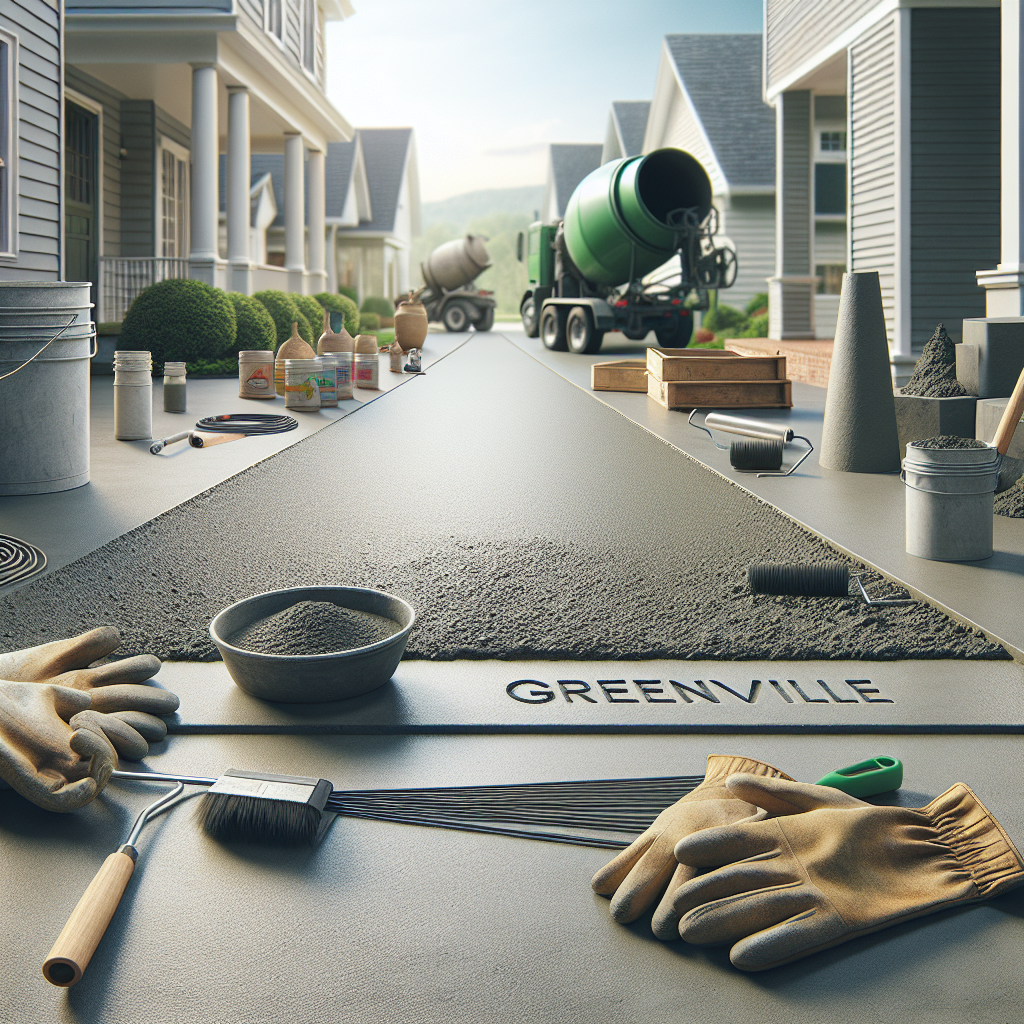Introduction to Sustainable Building Practices in Greenville, SC
Welcome to a fresh perspective on construction in the heart of South Carolina! In Greenville, a city known for its beautiful landscapes and vibrant community, sustainable building practices are not just a trend—they’re a pivotal aspect of development. As we delve into the world of sustainable construction, we’ll explore how local materials, particularly concrete, are playing a crucial role in shaping a greener future.
Why focus on local materials, you might ask? The answer is simple: using local resources significantly reduces the carbon footprint associated with transporting materials over long distances. Plus, it supports the local economy. In Greenville, where eco-consciousness is growing, choosing materials like concrete that are available locally can make a big impact.
Benefits of Using Concrete for Sustainable Construction in Greenville
Concrete isn’t just versatile; it’s also one of the most durable and resilient materials used in construction. Here’s why concrete is becoming a cornerstone of sustainable building in Greenville:
- Durability and Longevity: Concrete structures are known for their strength and long life span, reducing the need for frequent replacements and repairs.
- Thermal Mass: Concrete’s ability to absorb and retain heat helps in regulating indoor temperatures, leading to lower energy consumption and enhanced comfort.
- LEED Certification: Using concrete can contribute significantly to achieving LEED certification, a globally recognized symbol of sustainability achievement and leadership.
Local Concrete Solutions for Greenville Builders and Developers
Greenville is home to a variety of eco-friendly concrete mixes that not only support sustainable construction goals but also offer innovative solutions tailored to our unique climate and needs:
- Eco-friendly Concrete Mixes: Discover local suppliers that provide specially formulated concrete mixes with reduced environmental impact.
- Successful Case Studies: Learn from local projects that have successfully integrated concrete into their sustainable building practices, setting a benchmark for others to follow.
- Partnerships and Support: Building sustainably in Greenville is a collaborative effort. Numerous partnerships between suppliers, builders, and developers foster a community focused on sustainable development.
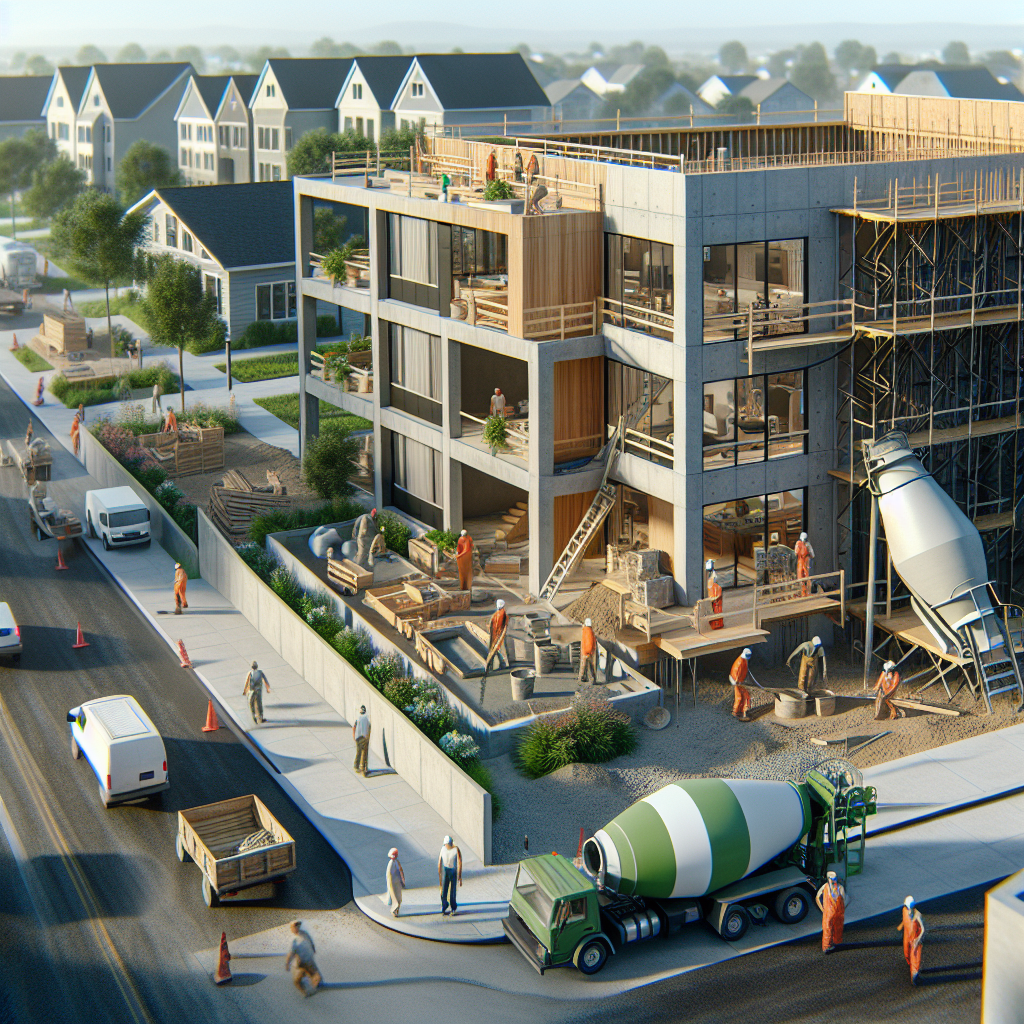
If you need help with your concrete project, reach out to Greenville Concrete Company for a free quote!
Introduction to Sustainable Building Practices in Greenville, SC
Welcome to the green revolution of building! In Greenville, SC, we are witnessing a significant shift towards sustainable construction practices. This trend is more than a buzzword; it’s a commitment to future generations. Let’s dive into what’s happening in the local scene and why choosing local materials isn’t just good practice—it’s essential for the environment.
Overview of Sustainable Construction Trends in Greenville
The bustling city of Greenville is fast becoming a hub for sustainable construction. Developers and builders are increasingly adopting green building technologies and methods. This isn’t just about reducing environmental impact but also about enhancing building efficiency and occupant health.
One of the standout trends is the use of green-certified materials. These materials are sourced to minimize environmental footprint, such as recycled content and locally sourced materials. Moreover, the push toward energy-efficient buildings is palpable, with new constructions aiming for certifications like LEED, WELL, and ENERGY STAR.
Another exciting development is the integration of innovative technologies such as solar panels, green roofs, and rainwater harvesting systems in new constructions. These technologies not only contribute to sustainability but also reduce long-term operating costs, proving that eco-friendly practices can be wallet-friendly too.
Importance of Choosing Local Materials for Environmental Benefits
Why go local? It’s simple: choosing local materials significantly reduces the carbon footprint associated with transporting materials from far-off places. But the benefits don’t stop there.
- Support Local Economy: By choosing local materials, you’re supporting local businesses and boosting the local economy. It creates jobs and fosters community growth.
- Reduced Transportation Emissions: Local materials mean shorter transportation routes. This leads to lower emissions and contributes to cleaner air quality.
- Better for the Environment: Local materials often need less processing and packaging, which means they have a lower overall environmental impact.
Moreover, using local materials can also ensure that the construction materials are suitable for the local climate, enhancing the durability and efficiency of buildings.
Local Impact with a Global Vision
When we choose local, our actions resonate beyond Greenville. We set an example for sustainable building practices that have a global impact. It’s about making intelligent choices that benefit our community and the planet. By championing local materials and sustainable practices, Greenville is not just following a trend; it’s setting a standard for others to follow.
As we continue to build and grow, let’s keep pushing the boundaries of what’s possible with sustainable construction. Our buildings are more than just structures; they are a testament to our commitment to a healthier, sustainable future. Let’s build that future together, one local brick at a time!
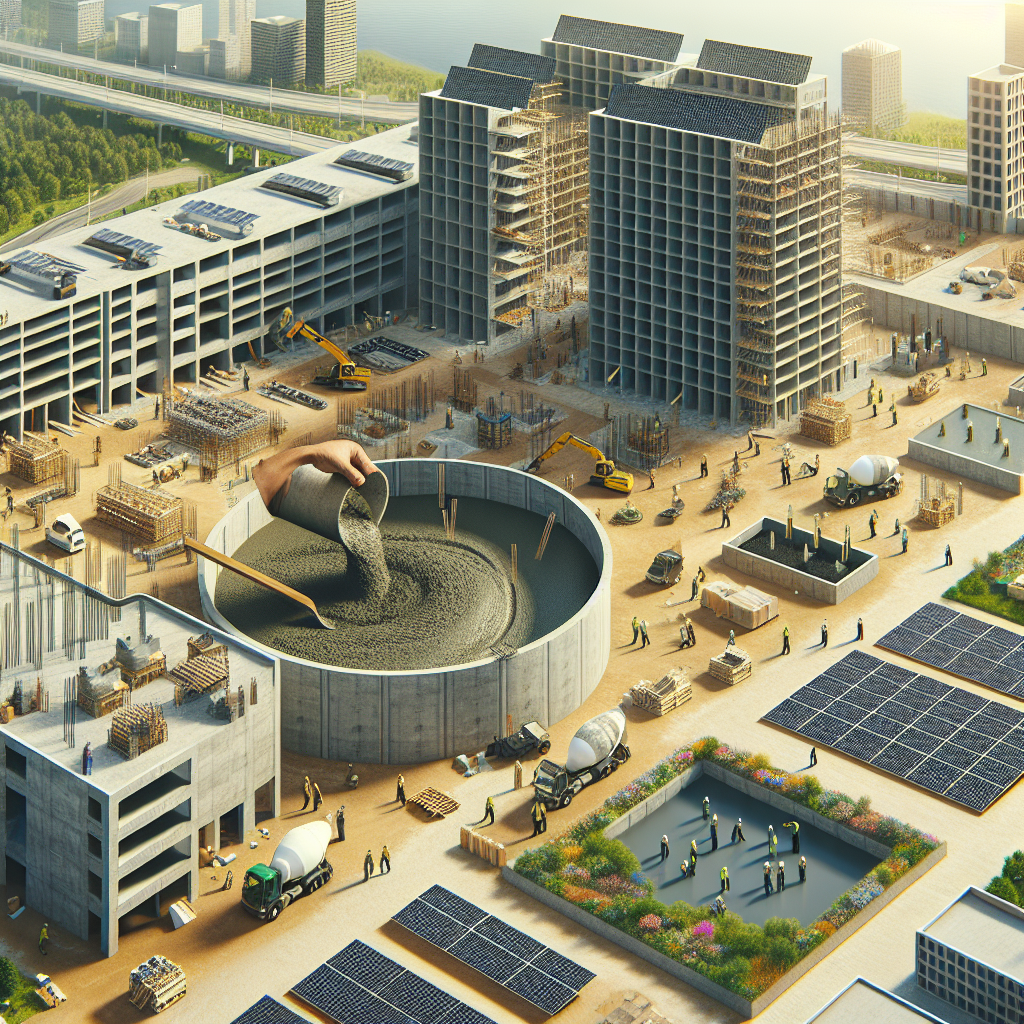
Benefits of Using Concrete for Sustainable Construction in Greenville
Hey there, savvy builders and environmentally conscious developers in Greenville! Let’s dive into why concrete isn’t just your average building material, but a superstar in the world of sustainable construction. When it comes to longevity, energy efficiency, and even snagging those coveted LEED points, concrete has a lot to offer. So, let’s break down why integrating concrete into your projects isn’t just good building sense—it’s a step towards a more sustainable future.
Durability and Longevity of Concrete Structures
First off, let’s talk durability. Concrete is like the Hercules of building materials. It’s incredibly strong and doesn’t bow down to the pressures of time or weather. For structures in Greenville, where the weather can swing from hot summers to chilly winters, concrete stands steadfast. But why does this matter for sustainability?
Well, the longer a building lasts, the less frequently it needs to be repaired or rebuilt. This means fewer resources are consumed over the building’s life cycle, from raw materials to the energy expended in construction processes. In simple terms, a durable concrete building keeps its cool (quite literally and metaphorically) for decades, reducing the overall environmental impact and saving on future material costs.
Concrete’s Thermal Mass Properties for Energy Efficiency
Moving on to the big buzzword: energy efficiency. Concrete has something called ‘thermal mass’ which plays a huge role here. This means concrete can absorb, store, and later release significant amounts of heat. During Greenville’s sunny days, concrete absorbs heat, keeping interiors cooler and reducing the need for air conditioning. When the temperature drops at night, that stored heat is slowly released, keeping the building warm.
**Why is this cool (or warm) for you?** Energy bills can plummet as concrete’s thermal properties help maintain a more consistent indoor temperature. This not only makes living and working spaces more comfortable but also slashes the carbon footprint associated with heating and cooling—the major players in a building’s energy consumption.
How Concrete Contributes to LEED Certification
If you’re in the building game, you’ve likely heard of LEED—Leadership in Energy and Environmental Design. It’s a globally recognized symbol of sustainability achievement and leadership. Concrete can be your golden ticket to achieving LEED certification for your projects. Here’s how:
- Recycled Content: Modern concrete mixes often include recycled materials like fly ash, slag cement, or recycled aggregate. Using these materials can contribute to LEED points under the Materials and Resources category.
- Regional Materials: Sourcing concrete made with local materials can also score LEED points. This reduces emissions from transportation and supports the local economy, a win-win for both the environment and Greenville’s builders.
- Energy Performance: As we discussed with thermal mass, concrete’s ability to manage heat can significantly enhance a building’s energy performance, ticking another box towards LEED certification.
Integrating concrete into your construction not only supports robust, long-lasting buildings but also pushes you ahead in the green building leadership space, making your projects more appealing to an eco-conscious market.
In the bustling construction landscape of Greenville, recognizing the sustainable potentials of concrete can set you apart. Whether it’s by lowering operational costs, reducing environmental impacts, or achieving prestigious LEED certification, concrete offers tangible benefits that are hard to ignore. So, think of concrete not just as a foundation, but as a bridge to a more sustainable and prosperous future in building. Let’s build smarter, not harder!
Local Concrete Solutions for Greenville Builders and Developers
Hey there, Greenville builders and developers! Are you looking to make your next construction project as sustainable as possible? You’re in luck! In Greenville, we’re blessed with innovative concrete solutions that not only meet the building standards but also push the envelope in environmental stewardship. Let’s dive into what makes concrete the go-to material for sustainable building in our lovely city.
Eco-Friendly Concrete Mixes Available in Greenville
If you’re aiming to reduce the environmental footprint of your projects, considering the type of concrete you use is a great start. In Greenville, several eco-friendly concrete options are making waves:
- Low-Emission Concrete: This type of concrete minimizes the CO2 emissions associated with traditional concrete production. It’s perfect for projects aiming for green certification.
- Recycled Aggregate Concrete: Made by using recycled materials as the aggregate instead of freshly quarried stone, this concrete type is not only sustainable but also helps in waste management.
- High-Performance Concrete: While this might sound more technical than eco-friendly, its durability means structures last longer, reducing the need for frequent repairs or rebuilds, which in turn conserves resources.
Each of these concrete types offers specific benefits and choosing the right one can significantly impact the sustainability of your project. Don’t hesitate to ask for these products by name when discussing with your local concrete suppliers or consultants.
Case Studies of Successful Sustainable Projects Using Concrete in Greenville
Seeing is believing, right? Let’s take a look at a few projects in Greenville that have successfully utilized eco-friendly concrete to achieve both sustainability and functionality:
- The Eco-Complex Apartments: This residential project used high-performance and recycled aggregate concrete, significantly reducing its carbon footprint. The result? A modern, energy-efficient complex that stays cooler in summer and warmer in winter.
- Green Tech Hub: This commercial building incorporated low-emission concrete in its construction. It’s now a standout example of sustainable development in Greenville and has achieved LEED Platinum certification.
These projects not only demonstrate the practicality and effectiveness of using sustainable concrete but also showcase the potential for innovation in our local construction industry.
Partnerships and Support for Greenville Construction Projects Focusing on Sustainability
Building sustainably doesn’t have to be a lonely road. In Greenville, there’s a strong network of support for those who choose to walk this path. Whether you’re looking for financial incentives, technical assistance, or just some good old-fashioned advice, there are plenty of resources available:
- Local Government Incentives: The city of Greenville offers various incentives for sustainable construction, including tax rebates and grants. Make sure to check out the latest offerings to see how they can benefit your project.
- Greenville Green Building Forum: An invaluable resource for networking and information sharing. It’s a place where you can connect with like-minded professionals and stay updated on the latest trends and technologies in sustainable building.
- Educational Workshops and Seminars: Regularly hosted by local universities and environmental organizations, these events provide insights into sustainable practices and how to implement them effectively in your projects.
Remember, choosing sustainable practices, particularly local eco-friendly concrete solutions, doesn’t only help the environment; it also adds value to your projects and can be a significant selling point in today’s eco-conscious market. So, let’s build a greener Greenville together!
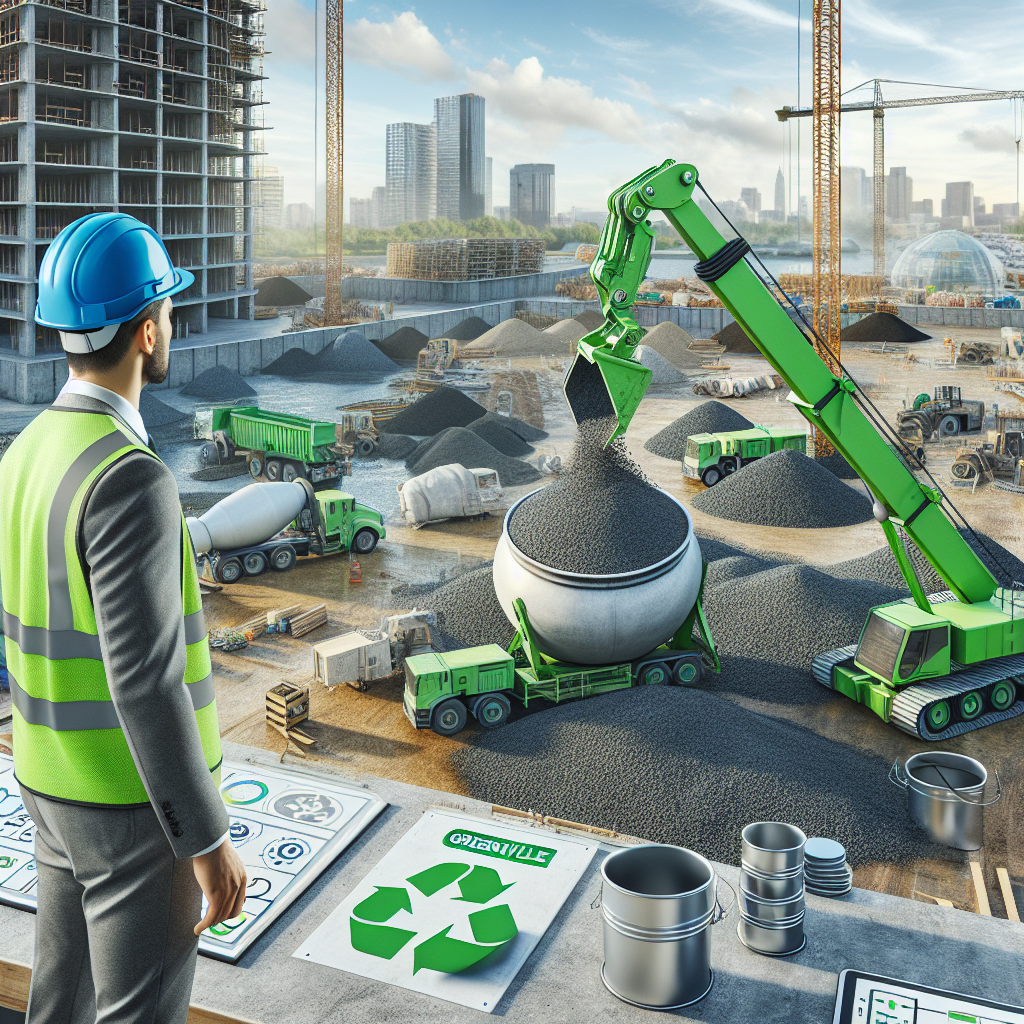
Frequently Asked Questions
What are sustainable building practices?
Sustainable building practices are methods that significantly reduce or eliminate the negative impact of buildings on the environment and its occupants. This includes using energy more efficiently, utilizing environmentally friendly materials, and creating healthier living spaces.
Why is choosing local materials important for sustainable construction in Greenville?
Choosing local materials minimizes the environmental impact associated with long-distance transportation. It also supports the local economy and reduces the carbon footprint of construction projects.
How does concrete contribute to sustainable construction?
Concrete is a durable material that enhances the longevity and resilience of buildings. Its thermal mass helps in regulating indoor temperatures, reducing the need for heating and cooling and thus improving energy efficiency. Additionally, concrete can contribute to earning LEED points, which are essential for green certification.
What are the types of eco-friendly concrete mixes available in Greenville?
In Greenville, builders can access various eco-friendly concrete options such as recycled aggregate concrete, low-carbon concrete, and concrete that incorporates supplementary cementitious materials like fly ash or slag.
Can you provide examples of successful sustainable concrete projects in Greenville?
Several projects in the area have successfully incorporated sustainable concrete practices. These include residential developments, commercial buildings, and public infrastructure, all demonstrating the effectiveness and benefits of using eco-friendly concrete solutions.
What support is available for builders aiming for sustainability in Greenville?
Builders and developers in Greenville can benefit from various partnerships and programs designed to support sustainable construction. This includes technical assistance, workshops on sustainable practices, and incentives for green building certifications.
Conclusion
In conclusion, the shift toward sustainable building practices in Greenville, SC, is not just a trend but a necessity for future-proofing our infrastructure and ensuring environmental stewardship. Concrete, with its durability, energy efficiency, and potential for LEED certification, stands out as a prime material choice for local builders and developers committed to sustainable construction. At Greenville Concrete Company, we are proud to offer a range of eco-friendly concrete mixes tailored to meet the specific needs of your projects. Whether you’re embarking on a small residential build or a large commercial development, our products and expertise are geared towards maximizing sustainability without compromising on quality.
We encourage anyone planning a construction project in Greenville to reach out to us. Discuss your project requirements and explore how our sustainable concrete solutions can benefit you. Remember, choosing us means investing in the longevity, efficiency, and sustainability of your project. Contact Greenville Concrete Company today for a free quote and take a step towards building a greener, more sustainable future.

